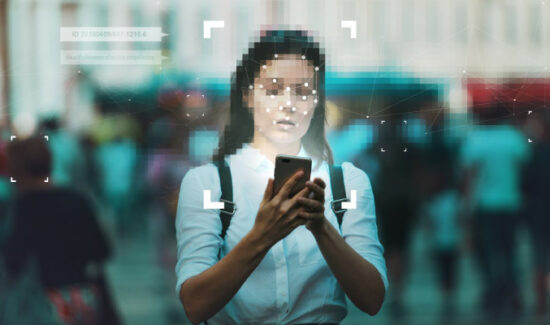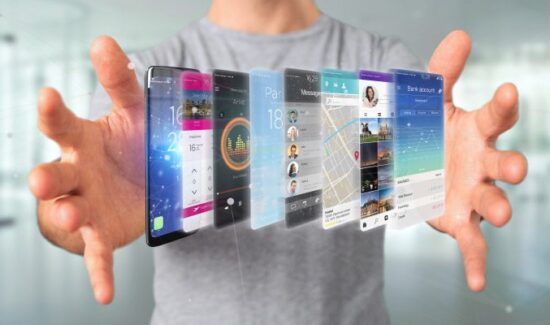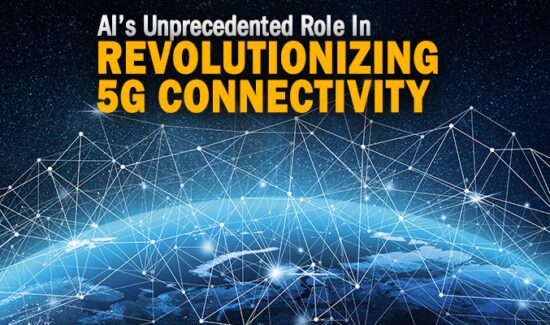Why We’ve Been Thinking too Simply About Encryption
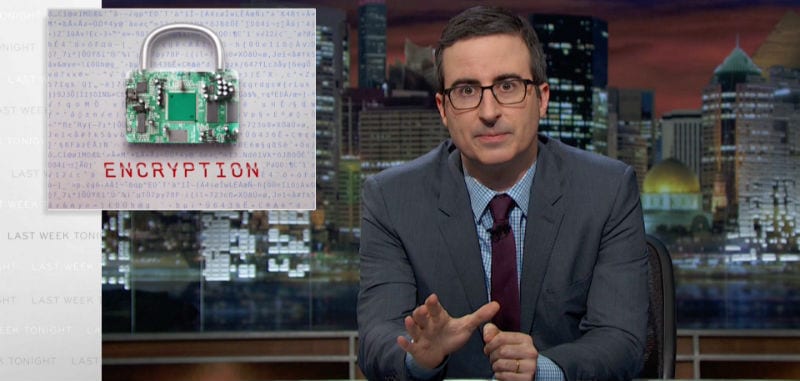

Encryption has always been important, but with all of this Apple vs the FBI stuff going around, people are talking about it like crazy. John Oliver just did a segment on his show Last Weekend Tonight and brought up some very valid points: In general, we’re thinking about encryption way too simply. With the entire country up in arms, everyone is an expert all of the sudden and the reaction is very extreme in either direction. Add this on top of a tense political climate and we have one of the biggest technology issues of all time on our hands.
The first thing we need to understand is that at first glance both points are extremely valid. Unfortunately, people are scared and hacking into phones that could contain information detrimental to the security of the United States is a no-brainer; why would we respect the privacy of someone who wants to harm us? Like Oliver mentioned in his segment, the Manhattan District Attorney has 175 phones that would immediately be in line for decryption if Apple were to give in and a lot of those phones are not considered threats to national security.
Right now there are a lot of politicians and government officials commenting on what should be done. There is this general misunderstanding when it comes to technology. If you don’t have an IT background and you try and follow a conversation about IT it can be hard to grasp because networks and a lot of the components that make up the digital structure of a company are intangible; we sit there trying to picture these things, but they don’t look like anything so we picture it on our heads. We try to relate these digital issues to the closest thing we can, which in this case is a lock and key: Why can’t we just kick in the door?
If we want to think about it like it’s a safe we need to crack, this iPhone is not any safe. This phone has a protection on it that is universal for all doors of the same kind. That’s over one million iOS 9 doors that have the same key. Sure you can break into one of them given the time, but that leaves the door wide open to anyone, good or bad. So while these people are commenting on the situation there are two major points that need to be made: There is no way that we can just “throw away the key” after the backdoor is implemented and are we willing to compromise our own privacy forever?
Tim Cook has made this point by saying,” No one, I don’t believe, would want a master key built that would turn hundreds of millions of locks even if that key was in the possession of a person you trust the most. That key can be stolen. It’s the software equivalent of cancer.”
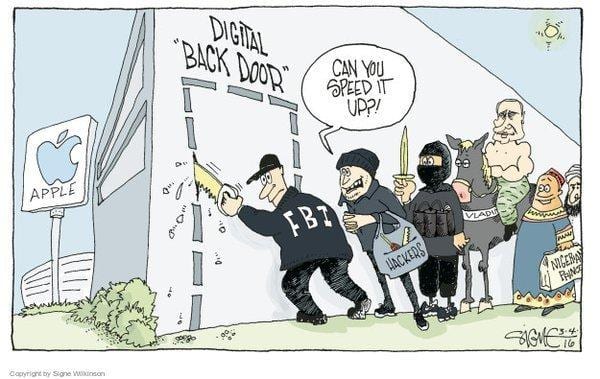
Like Cook said, this leaves the door wide open to be hackers who are in possession of a key that can be used against you over 100 million times. That’s catastrophic not only for personal data, but for businesses, small and large. No matter what EMM solutions you invest in, this back door negates that entirely.
It’s a strange time we live in where too much security is seen as such a big issue. Our laws and government are not equip to handle this situation, and the outcome of this particular case be the deciding factor on how our digital privacy will be handled moving forward. This is not the first time this issue has come forward however. Back in the 90’s a similar thing happened and the government tried to implement the Clipper Chip. These chips were meant to give the government access to your computer and encrypted files if they needed. These chips were short lived. After circulating in 1995, the were completely defunct by 1996 because they were hacked. They technology has gotten better since then, but so have the hackers.
There is speculation that this entire situation is a marketing ploy by Apple so they can be seen as social justice advocates. This may be the case, and I’m sure it is to some extent, but so what? It doesn’t change what this encryption battle means to, not only Americans, but smartphone users around the world. This is a global issue that extends to iPhone users, which are not limited to the US and will inevitably spread to other operating systems as well. Oliver also makes the point people who really need or want encryption will find it. There are apps out there that will do just that, possibly even better than Apple can. The people who are going to suffer from this is the average smartphone user who gets their identity stolen, not because they were careless, but because someone else left the backdoor open.


